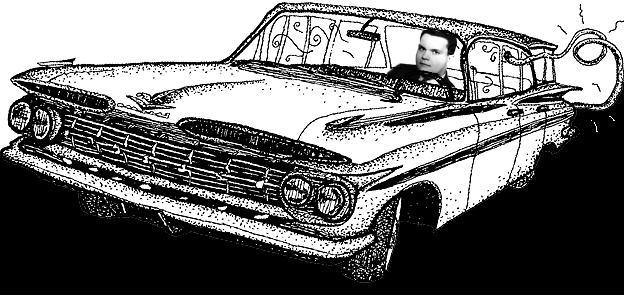John Kennedy TooleWhen I told my friend Stephanie about The Lost Soul Companion project, she told me about John Kennedy Toole. He wrote her favorite book, A Confederacy of Dunces—a fantastically funny novel about a guy named Ignatius Reilly and his adventures in New Orleans. The work won Toole the Pulitzer Prize, but he didn't live to see his success. Instead he died thinking he was an utter failure. I wish I could bring him back from the dead and show him what a contribution he made, but I can't. Ken Toole was born in New Orleans in 1937. Throughout his life he was very close to his mother, Thelma, who fostered in her son a love for learning and "high culture." Ken was an unusually gifted child with an I.Q. of 133 as a first grader. He graduated from high school at age 16. At 20 he graduated from Tulane with honors in English and a Woodrow Wilson Fellowship for graduate studies. In 1957 he matriculated at Columbia University where he completed a two-year master's literature program in just one year. He was a literature professor at Hunter College in Manhattan and then a faculty member at the University of Southwestern Louisiana until 1961 when he was drafted. In the army, he taught English at Fort Buchanan, Puerto Rico. Surprisingly, his position afforded him his own private quarters and plenty of time to write. A Confederacy of Dunces resulted. After his discharge, Ken returned to New Orleans and immediately submitted his manuscript to Simon & Schuster for publication. Soon after, the publishing house sent a letter which was so encouraging that publication seemed imminent. But, according to New Orleans writer Dalt Wonk, the letter was merely the first in a disappointing series. In his two-part work "John Kennedy Toole's Odyssey among the Dunces," Wonk described the events:
Wonk continued: "After two years of dickering, Thelma says, Gottlieb rejected the book." Ultimately, Ken gave up the search for a publisher. On January 20, 1969, he began a two-month-long journey. He drove to California then Georgia—stopping to see the Hearst Mansion and the home of Flannery O'Connor—and, finally, to a wooded area in Biloxi, Mississippi where he ran a garden hose from his tailpipe to one of his back windows. Three boys discovered his body. The car's engine was still running. Until recently, most people blamed the publishing industry for his death. Joel Fletcher was one of Ken Toole's friends and has written a memoir about Ken and Thelma. Fletcher explained, "Robert Gottlieb has pretty much taken a bum rap in the story of Ken and Confederacy. The version that is 'out there' is Thelma's much simplified and grossly unfair version. . . . Suffice it to say, there were really no villains in this story, only victims." Some scholars now suggest that Ken Toole's disappointment was compounded by many other problems including his domineering mother, financial burdens, binge drinking, questions about his sexuality, and, as if those weren't enough, the early signs of what might have been schizophrenia. After his death, Thelma Toole decided to continue the search for a publisher. She succeeded nearly nine years later—thanks to the help of Walker Percy, an influential local novelist. In 1980, Louisiana State University published A Confederacy of Dunces, and it won the Pulitzer Prize. Ken Toole left another novel, The Neon Bible, behind, but, had he lived, what else could he have offered us? I'm deeply saddened when I think of the body of work that died with John Kennedy Toole, and I know that things didn't have to turn out this way. I wish Ken Toole had had the support he needed back then, and, if I had known him, I would've tried to encourage less traditional thinking—at least with regard to the publishing industry. There's something to be said for starting out small. Although he might not have wanted to, Ken Toole could've self-published. It's not nearly as glamorous, but if all he really wanted was to see his work in print and in the hands of his readers, it would have been a perfectly acceptable solution. If, on the other hand, he desired the financial success and notoriety that sometimes come with being published by a large, established company such as Simon & Schuster, I would not have been of much help. I can't support any plan which relies too heavily on the fickle world of publishing. Ken Toole was brilliant, but he made the mistake of pinning his hopes on an industry in which luck and connections are often more important than talent. In case you haven't yet come to the part where I tell you that you won't always get what you need, allow me to say it again. You really won't always get what you need—or what you think you need—from the rest of the world. It's best to accept this reality and learn to depend on yourself. Now all that's left to do is appreciate his work and try to learn from his mistakes. Like John Kennedy Toole, you can be brilliant, motivated, and productive, but, please, do leave the giving up part behind. After all, garden hoses are for watering things and there is plenty of despair around as it is. |
 |
